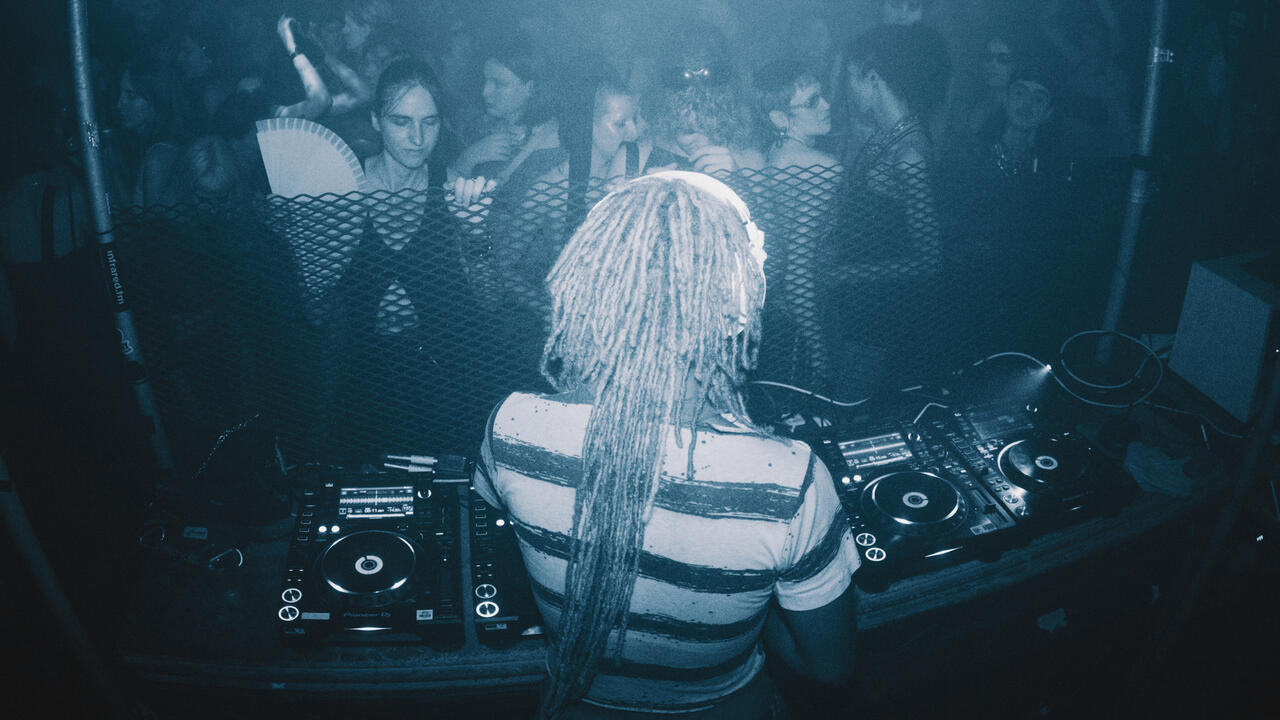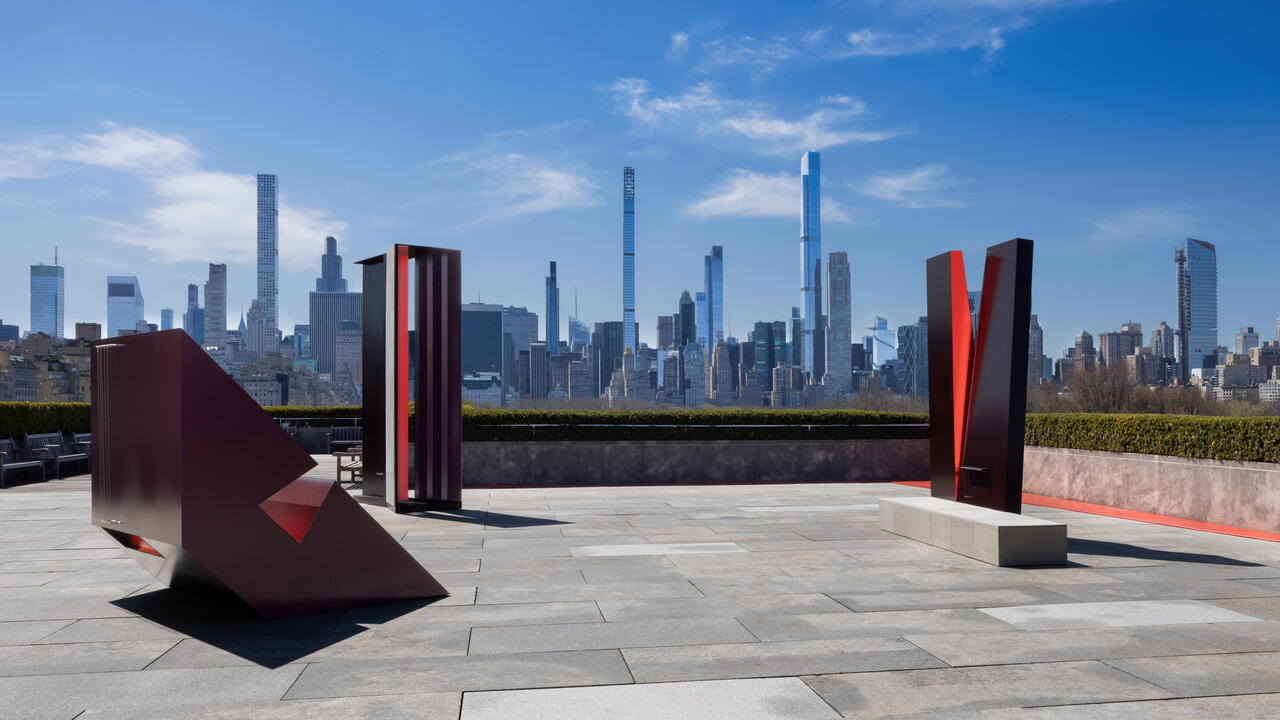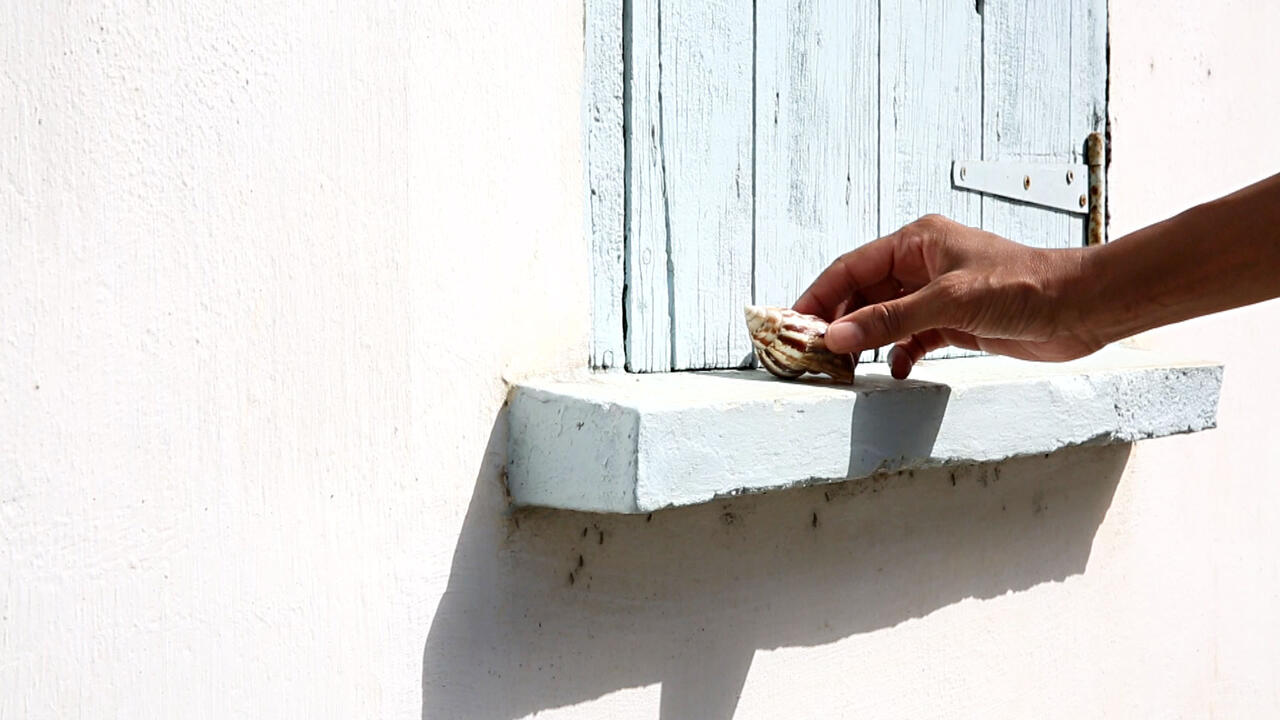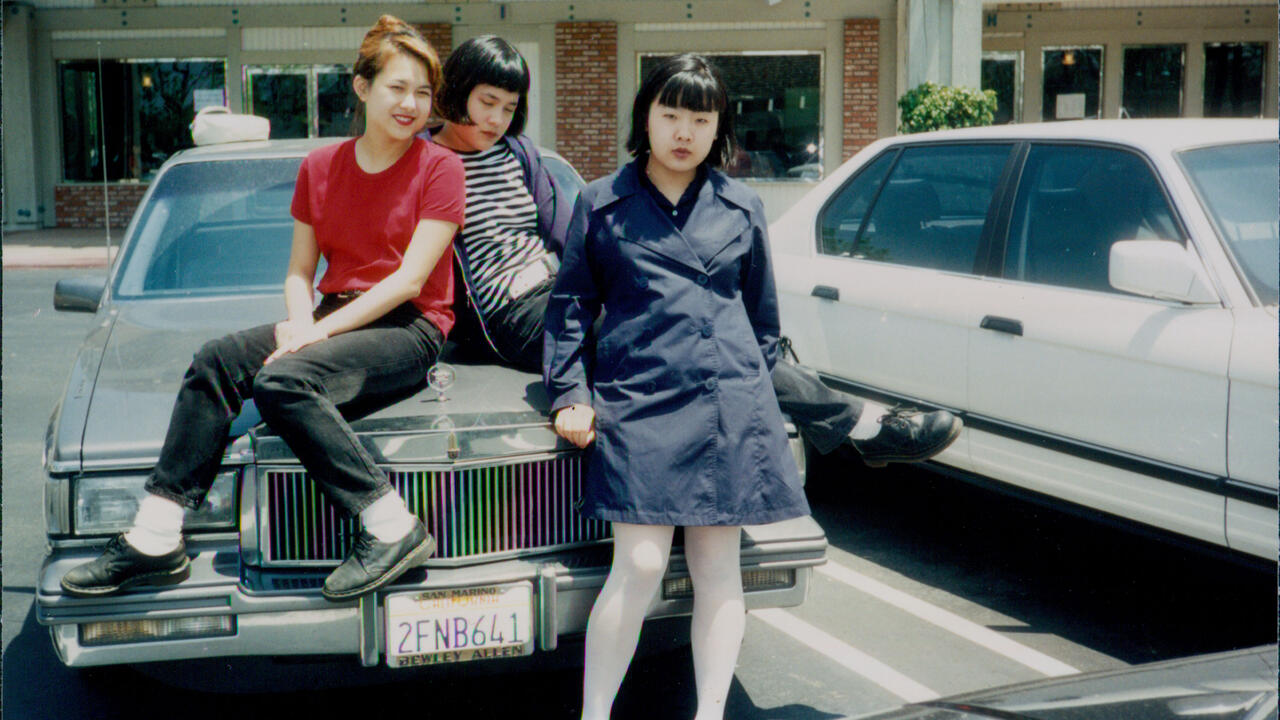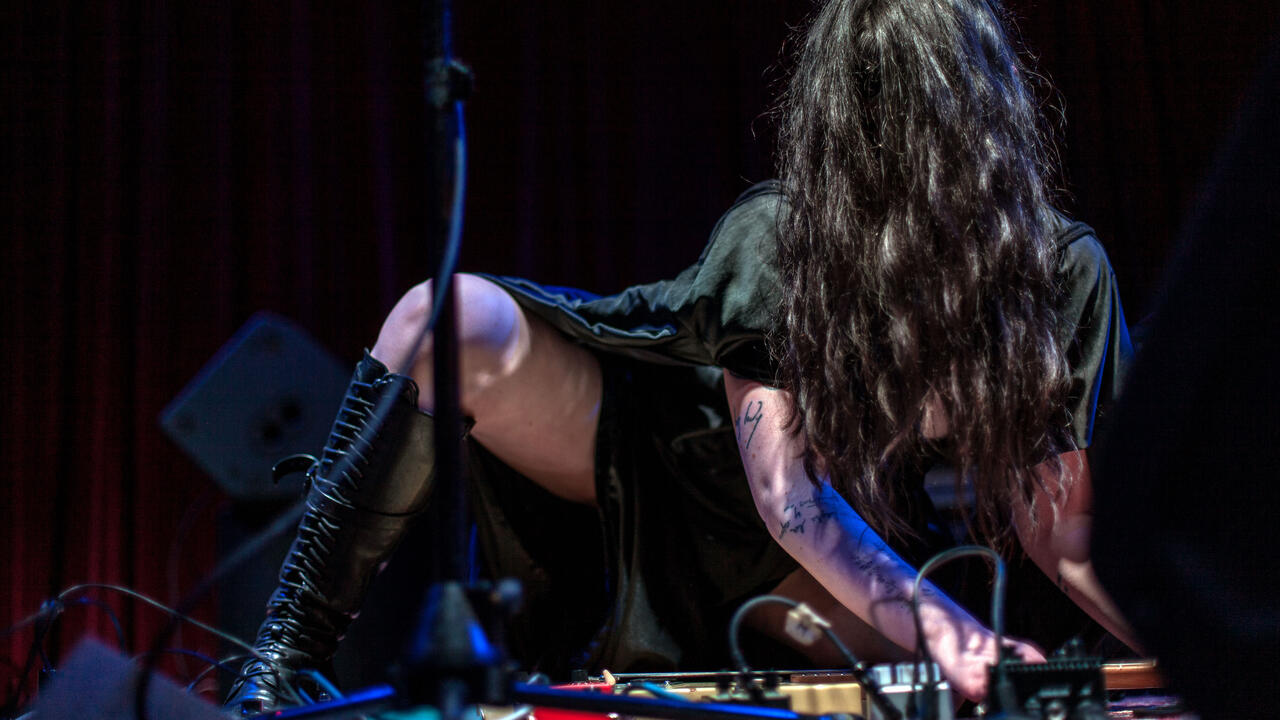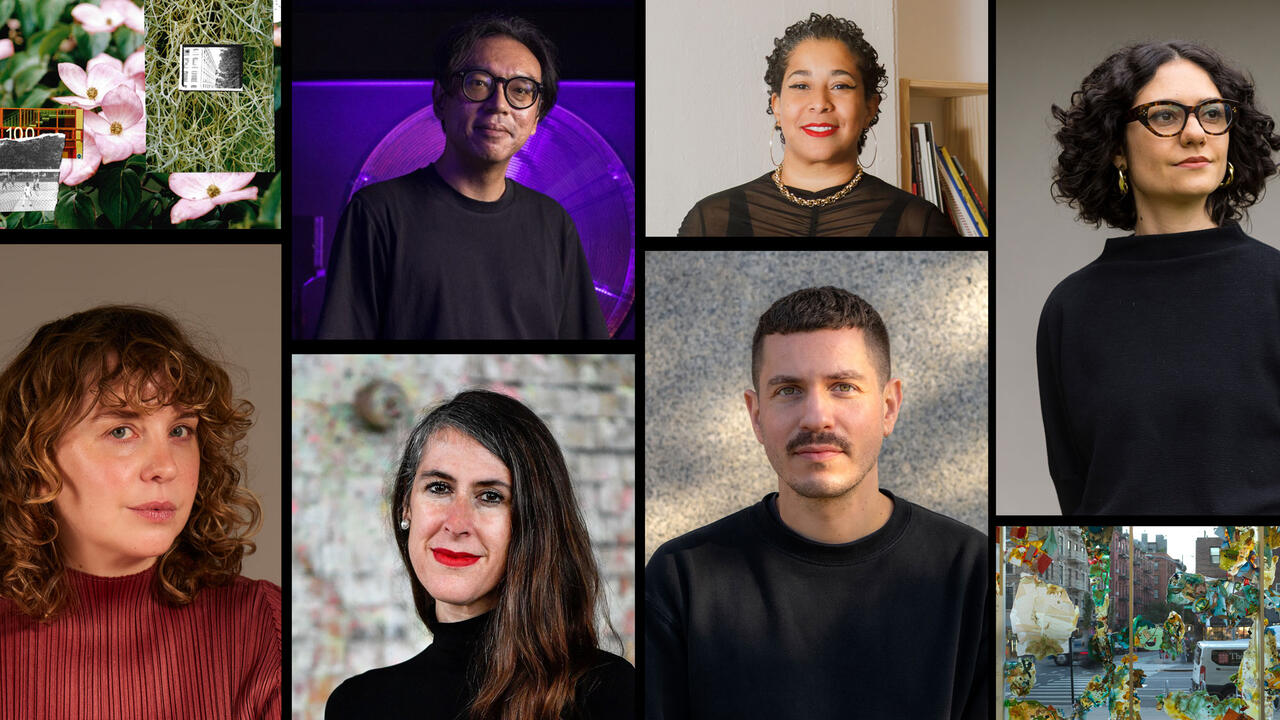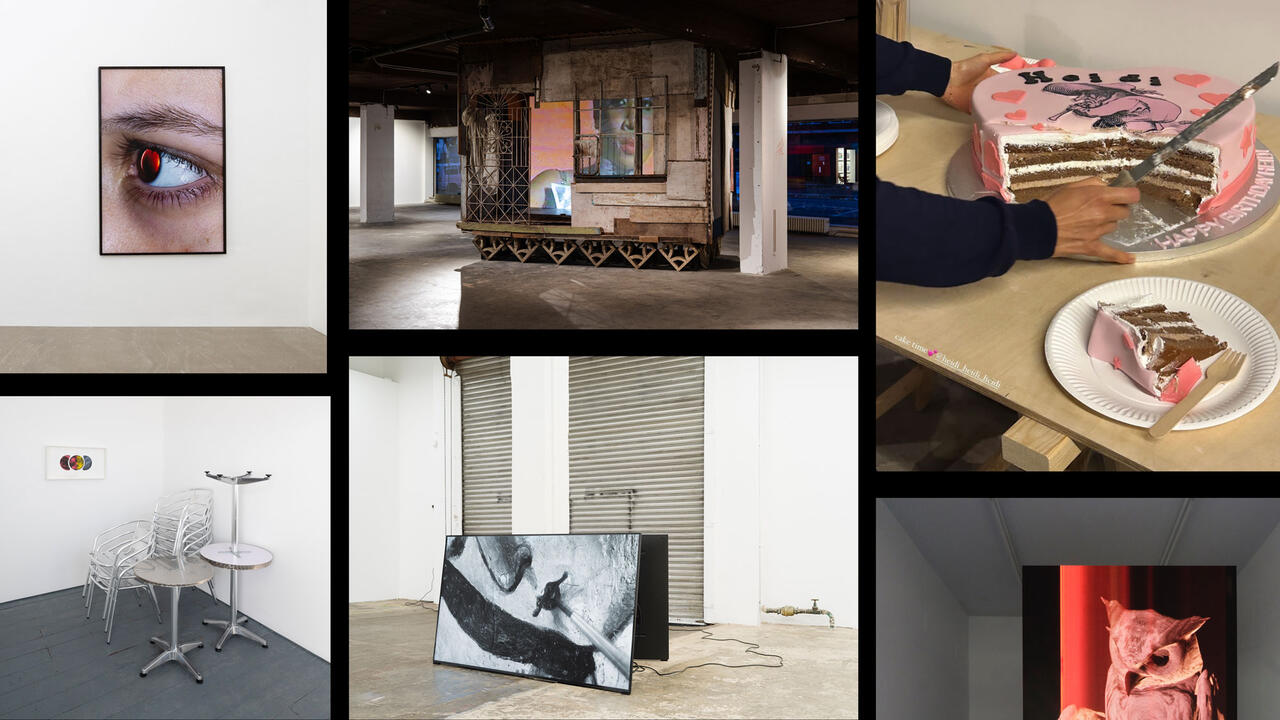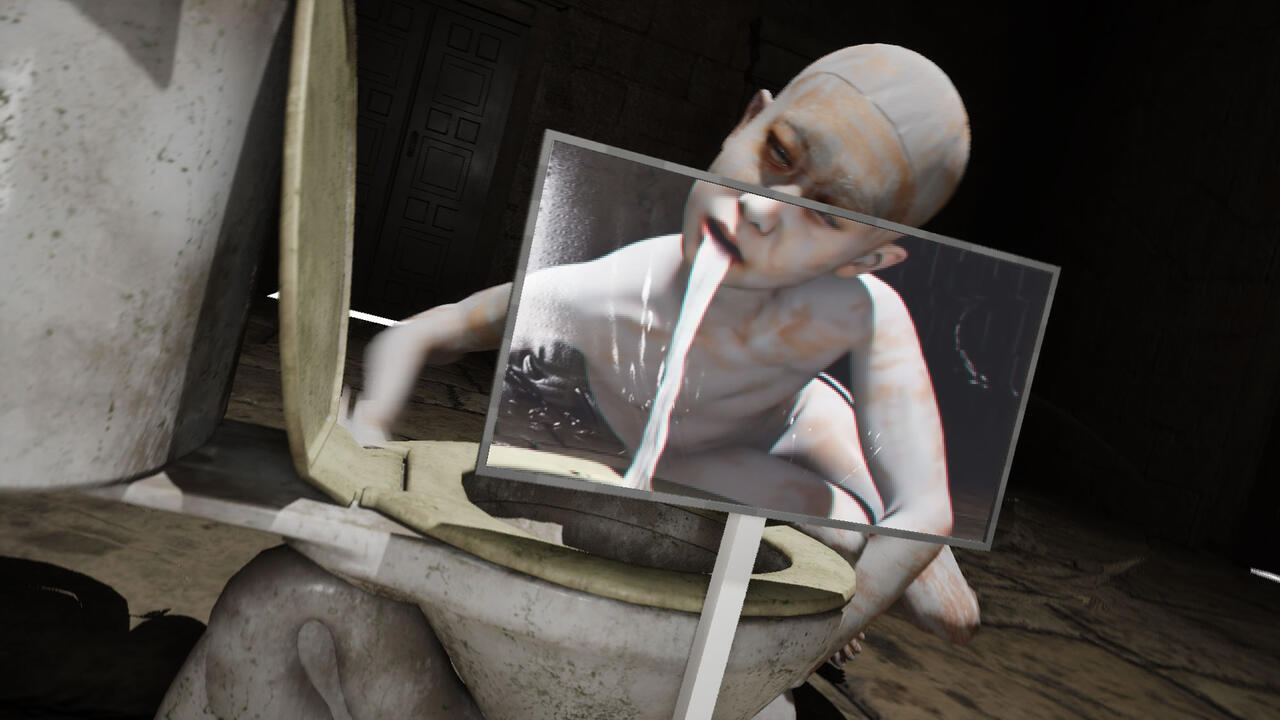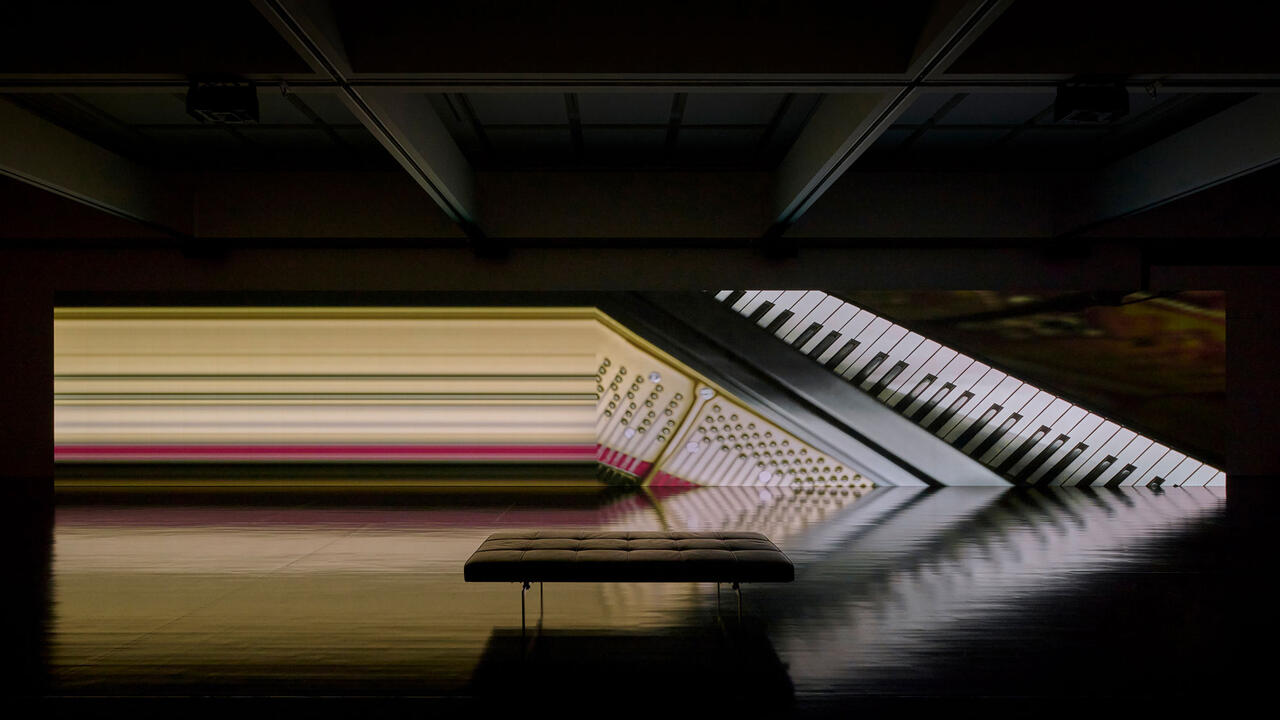Now That Grime Is Mainstream, Can It Still Be The Sound Of Opposition?
A new history of grime, Dan Hancox’s Inner City Pressure, details the rapidly shifting London landscape out of which it emerged
A new history of grime, Dan Hancox’s Inner City Pressure, details the rapidly shifting London landscape out of which it emerged

Grime music, much like the novel, is often pronounced dead. The school of fast, icy British rap that spawned in early 2000s east London, seemed to have fallen quiet by the end of the decade. A platform for lyrical ranting over video game-like buzzes and bleeps at an electric 140BPM, an Afrofuturistic, inner city brand of punk, it achieved a second wave of success in 2014–15, becoming the soundtrack to political opposition in the UK.
In the short campaign before the UK general election of June 2017, grime MCs and producers – including Novelist, Jme, AJ Tracey and his cousin Big Zuu – shored up support for Jeremy Corbyn’s Labour Party. In the same election, the turnout of 18–24 year olds was at its highest since 1992. Earlier this year, at the 2018 Brit Awards, Stormzy freestyled under indoor rain and a lonely spotlight, calling directly on prime minister Theresa May: ‘Where’s the money for Grenfell?’ He spat further bars about ‘MPs sniffing coke’, ‘black girl magic’ and the reliably censorious Daily Mail.

One thing that separates second generation grime artists from the first is that they are more firmly millennial. They don’t just talk about their own problems, but everyone else’s too. Yet no sooner had grime taken to the podium, lauded by the musical establishment and anointed by the Guardian as ‘the sound of protest’, the hits appeared to dry up. It’s an axiom of underground culture that when an artist or scene gains mainstream acceptance, its days of radical innovation are already long gone. Perhaps most damningly, the fans have moved on too. In 2018, it isn’t grime scoring multi-million YouTube views, but smoother, polyphonic Afro-bashment tunes, or the harsh, trap-tinged sound of UK drill.
It’s drill that has made headlines, more than any avowal of left-wing causes, over the last few months. Drill originated on Chicago’s south side in the early 2010s and was adapted by rap crews in Brixton and Kennington around 2012. In line with a rise in violent crime, up 22% in 2017, academics and journalists have singled out drill videos, in which artists appear masked, threatening their ‘opps’, making frequent reference to territory, stabbings and guns. It may be intense, but these are not new themes in rap. Perhaps instead of reheating old conversations about art imitating life imitating art, the question of drill might suggest something more complex about gang violence and its triggering by highly-visible spats played out on social media.
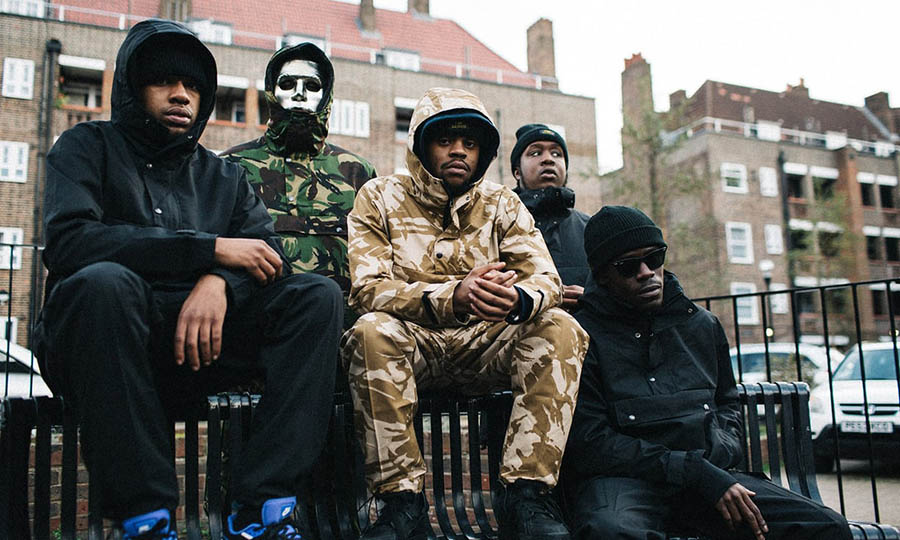
Aficionados will be quick to castigate the conflation of grime with road rap, UK rap, trap, drill, Afrobeats or any other iteration of what was once just ‘UK hip hop’. With drill, the instrumentals are laced with ominous bells and gothic choral samples, but the grime influence is still there, in the double-time flows, 2-step rhythms inherited from a long tradition of broken beats, not to mention an instantly recognizable verbal repertoire. Here as elsewhere, grime possesses an uncanny ability to remain hidden in plain sight. At the same time, grime is heralded and even imitated by major tastemakers in North America – DJ Khaled, Kanye West, ASAP Mob, and most of all Drake (‘signed’ to the Boy Better Know label founded by Jme and Skepta) – yet still remains largely ignored to those outside the UK.
Perhaps the problem is more fundamental. Skepta has a range of Nike sneakers, Wiley has an MBE, but as writer Dan Hancox explains in Inner City Pressure (William Collins, 2018), his newly published history of the genre, grime was born from opposition:
‘There is a glaring paradox to grime’s relationship with the mainstream over the years. Although its creators regularly talk about fame and fortune, it’s a sound that is unapologetically outsider and uncompromising, which – if we play devil’s advocate for a minute – is built from beats which are too strange and irregular to dance to, rapping that is too fast to be clear on the radio, lyrics full of slang and swear words, songs not really geared towards hooks and choruses, and artists unwilling to play the industry game’.

Inner City Pressure describes the landscape out of which grime emerged, and shows how that topography has shifted during its lifespan post-2000. Perhaps the best example of this transformation is Dizzee Rascal’s spat with Crazy Titch, which opens the book, on a Stratford rooftop that was home to the roaming pirate radio station Deja Vu FM. That ‘scrappy, marshy part of Stratford’ would be bulldozed not long after, to make way for the sparse and spotless London 2012 site and the GBP£486 million Olympic Stadium, to which Dizzee would return from his new home in Miami to perform his party anthem ‘Bonkers’ at the opening ceremony.
Wiley’s 2017 album The Godfather was billed as a ‘mission accomplished’ moment for grime, but perhaps the mission wasn’t so much global success as acceptance at home, over and above the giants of US hip hop. In that respect, it has been an unqualified success. The fact that emerging MCs have the confidence to speak not only about the problems in their immediate surroundings, but in society at large, is a testament to the journey it has made. As Hancox makes clear, grime is not only a product of immigration, urban struggle, Caribbean sound system culture and UK rave styles like jungle, but also of a crumbling east end, empty factories and the alluring, alien, portentous view of Canary Wharf from the blocks of Bow E3. Grime is more than a genre, it’s a mood, it’s expansive, and, in the UK at least, it’s unlikely to stay quiet.
Main image: Stormzy performing at the BRIT Awards 2018. Courtesy: AFP and Getty Images; photograph: Daniel Leal-Olivas








